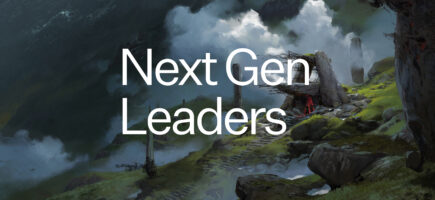The Future of External Creative Studios

The most popular articles
The first virtual External Development Summit (XDS) has wrapped. Room 8 Group’s President of Sales & Marketing, Brian Waddle hosted an impressive group of industry veterans in a session titled Build Effective Partnerships – How to Get Great Results from External Vendors.

ABOUT THE AUTHOR
Brian Waddle is President of Sales & Marketing at Room 8 Group. He is a games industry veteran and entrepreneur who has supported game teams around the world for fifteen years. Brian is an owner/board member of Telltale games where he and his partner purchased the company out of bankruptcy. Before that he was President of Sales & Marketing at Virtuos Games.
Joining Brian were industry executives from Ubisoft, EA, 2K, Respawn Entertainment, Bungie, and others. They discussed solutions to issues that traditionally block publishers, developers, and vendors from forming long term partnerships.
Current environment
Our industry stands at a crossroads where the release of several new platforms meets emerging technologies, as well as other changes to our daily lives. Publishers and developers face a new bevy of changes and challenges while still having to deliver high quality content and fun for gamers around the world.
Trying to mitigate ongoing repercussions stemming from the pandemic at the same time providing a steady flow of new content to gamers, all while reimaging how their business operates with a remote workforce is a lot to tackle. Add to that the need to quickly master the higher fidelity and increased complexity of new consoles and streaming platforms.
Partners in this process are more critical than ever before. Effectively using external creative studios should, in theory, make things easier.
But what makes for a successful partnership or collaboration?
Successful partnerships
Successful collaborations between publishers, developers, and externals begin with evergreen requirements such as offering expert level experience with tools and pipeline and a proven track record.
But certain requirements necessary to build long term, highly successful collaborations have taken on added importance within the last year:
- Communication
- Creative to Creative (Art version of Co-Dev)
- Strong Management
- Team Integration
- Creativity
- Variety of Services
Сommunication
Successful partnerships begin and end with the most basic of skills, efficient and effective communication. Whether working remotely or at an office, the need for clear communication is, now more than ever, vital.
Open communication between leads and critical team members, regardless of employer, can lead to increased creativity, more efficient workflow, and when there is an issue or problem, a clear escalation path for resolution. Throughout the entire collaboration process, transparency is critical for success.
Creative to creative
This about creating a true collaboration focused on both solutions specific to the game and the vision for the game. Creative leads participating together to drive game execution and design. The outsource partner must feel like part of the game team and the game team has to treat and respect the creative direction from the outsource partner as critical to the process and finished product.
To achieve this, publishers must put faith in their external partners, while external partners need to provide continued results that encourage the desired faith. Encouraging external partners to be creative can lead to personal investment in the game, which leads to improved results.
Strong management
Strong strategic management is vital when it comes to creating and sustaining faith. Internal and external communication will ensure teams and team members have clear direction, crucial reporting tools to ensure projects stay on track, and clear escalation paths for resolution.
Establishing an escalation process to tackle issues as they arise is needed. And transparency between partners eases everyone’s ability to conduct business in all functional areas beyond production such as finance, legal, and IT.
Team integration
Strong management, creative to creative, and communication will help ease team integration. Team integration is integral as it improves the delivery of amazing results with less friction and produces a greater sense of ownership and pride in projects.
Trust really does go both ways. Publishers/developers should build processes and infrastructure to bring in externals and make them part of the team. Externals that can ease integrational transition will succeed in unlocking the full potential of everyone involved in the game’s development.
The real key here is finding ways during COVID-19 in getting to know each other better. Normally we would have team junkets to allow people to spend time together and share ideas. This will return someday in the future, but for now you have to invent ways for the team to bond.
Variety of services is helpful in today’s demanding development process
Offering a full suite of services and better flexibility with their offerings such as art production services (environment and character concepts, 2D/3D art, illustrations, and animations/VFX) and various types of engineering and creative work is great.
But externals need to resist the pressure to offer a full suite and only offer services where they possess expertise. Being honest in your offerings and what you can provide will help foster long term partnership potential. Focus on doing what you do well in the beginning and share your growth plans together.
Conclusion
External creative studios that adopt and improve in these key identified areas stand the best chance of establishing long term collaborative partnerships. Publishers and developers that are willing to make externals an extension of their internal team and empower them will get better long term partnerships with better games for gamers around the world. The focus should be on the “potential” of the expanded talent to deliver.
My question to you, what other areas are going to be vital for publishers, developers, and external studios when it comes to forming long term collaborative partnerships? Can you treat your outsource partners as your own employees, part of the team accountable to deliver great games?




